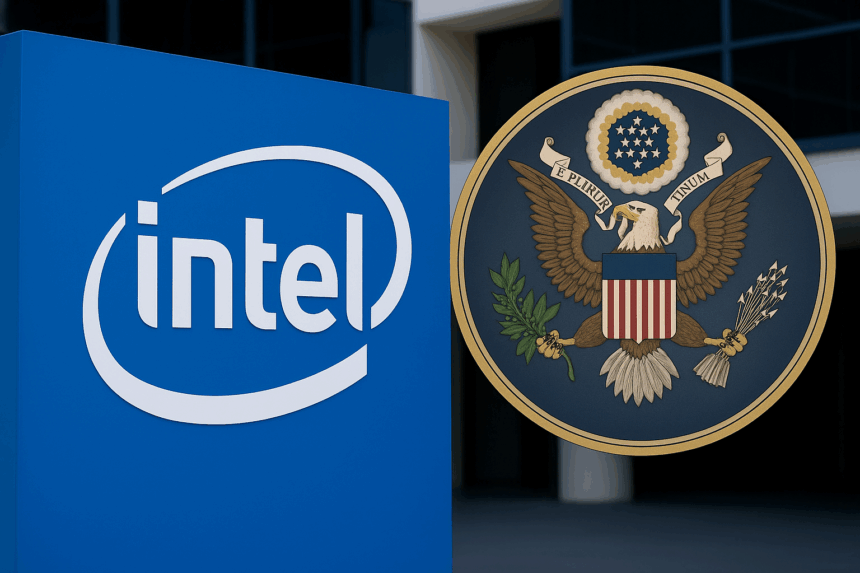The U.S. government is exploring a surprising move — taking an ownership stake in Intel. The potential deal could tap CHIPS Act funds to boost the struggling chipmaker’s finances and accelerate domestic semiconductor production. This consideration comes after a turbulent few weeks for Intel and its CEO, Lip-Bu Tan. Recently, they faced public calls for resignation from President Donald Trump, but tensions eased after a direct meeting.
What’s Happening & Why This Matters
A Possible CHIPS Act Pivot
According to multiple reports, the Trump administration is in early talks to buy a stake in Intel. The funding could come from the CHIPS and Science Act, a 2022 law signed by President Biden. This law aims to strengthen U.S. semiconductor manufacturing with $52.7 billion in incentives. Intel already secured nearly $8 billion from the program under the previous administration. However, this new plan would repurpose those funds — at least partially — for an equity stake.
The move is striking given Trump’s past criticisms. In January, he called the CHIPS Act a “horrible, horrible thing”. He argued that companies need tariffs and build-in-America incentives, not government subsidies. Yet now, he appears open to using its funding to secure a direct role in shaping Intel’s future.
From CEO Clash to Collaboration
Just days before the reports surfaced, Trump urged Tan to resign. He cited alleged ties to the Chinese Communist Party and investments in Chinese tech firms, some linked to the People’s Liberation Army. The tension cooled after the two met in Washington. Trump later called Tan’s career “an amazing story”, and Intel released a statement praising the president’s “strong leadership”. They also expressed commitment to work closely with the administration.
Why Intel Needs This Boost
Intel has faced steep challenges. The company is laying off 24,000 employees by the end of 2025. It is delaying its planned Ohio semiconductor hub to 2030 and struggling to compete in AI and advanced chip manufacturing. CEO Tan says the company is “laser-focused on strengthening our core product portfolio and our AI roadmap to better serve customers”.
An equity infusion from the government could stabilise Intel’s finances. It could secure its domestic projects and position itself favourably. A government-backed investment would be beneficial if Trump follows through on proposed tariffs as high as 300% on foreign-made chips.
Investor Reaction
The news sent Intel shares soaring — up 8.9% at one point before closing 7.4% higher at $23.86. This pushed its market value to $104.4 billion. Investors appear optimistic that a government partnership could turn around Intel’s fortunes.
Other government interventions in industry have recently included a $400 million preferred stake in MP Materials. It also includes a deal requiring Nvidia and AMD to pay 15% of Chinese AI chip revenue to the U.S. Treasury — though legal challenges may follow.
TF Summary: What’s Next
If the stake purchase proceeds, it would mark a sharp policy shift for Trump. It represents a rare government move to take direct equity in a major tech company. The decision could reshape Intel’s strategy, strengthen U.S. chip production, and intensify trade pressure on foreign manufacturers. But the plan is still in its early stages. Political hurdles — especially from critics of federal market intervention — could slow or block it.
For Intel, the stakes are high. A government-backed revival could secure its role as a cornerstone of America’s semiconductor ambitions. Without it, the company faces a longer, tougher road back to industry leadership.
— Text-to-Speech (TTS) provided by gspeech


